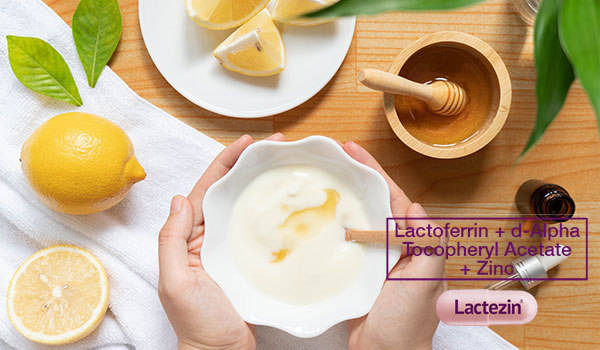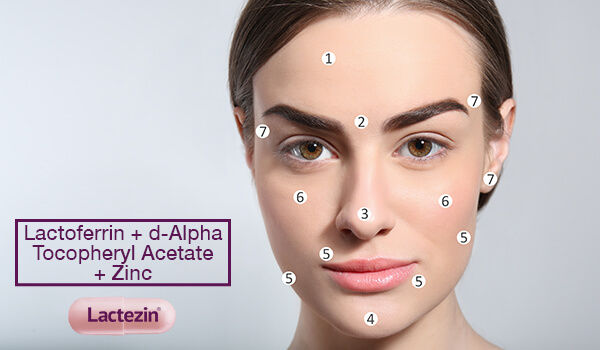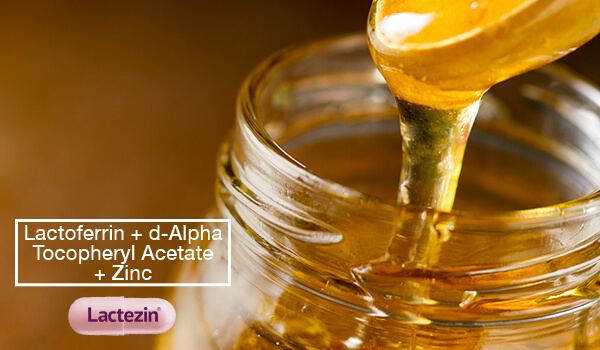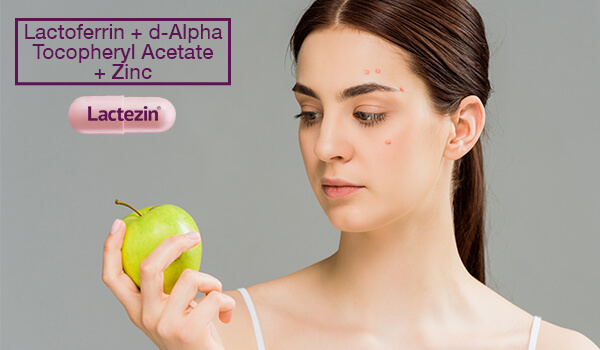Busted: 5 Harmful Acne Breakout Treatments

If you’ve had to deal with acne breakouts for most of your life, you may have encountered DIY home treatments that users swear by. But do these really work, or do they just make your acne problem worse? Here, we take a look at the more popular ingredients and recipes and see if they deliver– or if they’re much better off on your plate than on your face.
Why do we get acne breakouts?
Before we get to the nitty gritty of treating acne, it’s important to understand what it is and how it happens.
Acne breakouts occur when your pores get clogged with oil and dead skin cells. Normally, these dead skin cells should flake off after they rise to the surface of the skin. But when you produce excess oil, they clump together with the dead skin cells and form a plug that blocks your pores.
Unfortunately, bacteria also lives on your skin and can also join the mix. When the bacteria becomes part of the clog, it causes the inflammation and redness associated with pimples. These pimples may develop a whitehead or become cystic, depending on the number of bacteria and inflammation.
Aside from this, there are other lesser known causes of acne that may surprise you, which include daily habits and lifestyle practices often taken for granted.
Harmful acne treatments to watch out for
Because acne is a very common skin problem affecting both men and women across age groups, there are just as many acne treatments available in the market– and also in your pantry.
Homemade skincare is a tradition that has long been part of many cultures around the world. In recent years, DIY skincare saw a revival in line with the boom of the green beauty movement. A quick search on Pinterest or YouTube will give you recipe after recipe that promises a variety of skincare benefits, including treating acne. These all sound very appealing: mostly cheap, natural, easy-to-find ingredients that are easy to make. But before you start raiding your pantry to make an acne mask, you need to be cautious of the ingredients you’ll be putting on your skin.
Here are some of the more popular ingredients in homemade acne treatments that you need to be cautious of:
Lemon juice
Lemons are a rich source of vitamin C and are known for their detoxifying effects, like when you add them to your drinking water. For the skin, lemon juice has astringent qualities because of its acidic level, which can supposedly help decrease oil and inflammation that contributes to acne.
However, since it is extremely acidic, a common side effect of applying lemon juice and other fruit acids is skin irritation. You may also experience excessive dryness, redness, and peeling of your skin.
Cinnamon
This red spice gained attention from the beauty community after a blogger touted it for its purifying power after using it as a face mask. However, applying cinnamon on your skin may not be the best idea. Lowest-risk scenario, you may experience a tingling sensation or some redness. Worst case, you may sustain a burn from the cinnamon oil, especially if your skin is sensitive to begin with.
Egg whites
With acne, you may also be dealing with large pores. The DIY solution? Egg whites. Egg white face masks claim to tighten pores and smoothen skin and they do– for a while, that is. Any tightening benefits will wash down the drain once you rinse off the residue. At worst, raw egg can be contaminated with salmonella, which is risky if you’re applying it so close to your mouth or on an open wound like a healing pimple.
Apple cider vinegar
Apple cider vinegar (ACV) is a popular ingredient in DIY astringents. It claims to help clear acne, fade acne scars, and even remove moles. The risks: aside from having to deal with the smell, using it on your face will induce a stinging sensation. Using it undiluted long-term could corrode your face because of its high acidic levels. Acne sores are at risk for burns and irritation. Also, using it so close to your eyes is dangerous, as you may experience inflammation or even a cornea burn.
Sugar
Exfoliation is an important part in skin care but there’s a right and wrong way to go about this. Using the popular sugar scrub method may be good for the rest of your body but not your face. The rough nature of sugar scrubs can create small tears in the skin and lead to damage, especially if you’re using regular sugar. Aside from wounds and scratches, it may also cause irritation, redness, and dryness.
How to treat acne
Finding the perfect acne treatment requires a tremendous amount of patience and a lot of trial-and-error, simply because there is no one-size-fits-all when it comes to fighting acne. When it comes to these natural solutions, the general advice is to leave the mixing to the product manufacturers. Taking these ingredients from your pantry to your bathroom can create risks of contamination, infection, or damage that could make your acne problem worse.
Lactezin for acne management
On top of good skincare practices and a healthy lifestyle, you can also consider taking oral medication like Lactezin to help manage pimples. Lactoferrin + d-Alpha Tocopheryl Acetate + Zinc (Lactezin is an over-the-counter drug powered by Lactoferrin, Vitamin E, and Zinc which all help treat different kinds of acne problems including whiteheads, blackheads, and oily skin. Learn more about Lactezin here.
SOURCES:
https://www.dermstore.com/blog/top_ten/what-causes-breakouts/
https://www.healthline.com/health/lemon-for-face#side-effects
https://www.healthline.com/health/beauty-skin-care/
https://www.healthline.com/health/sugar-scrub-for-face#side-effects


